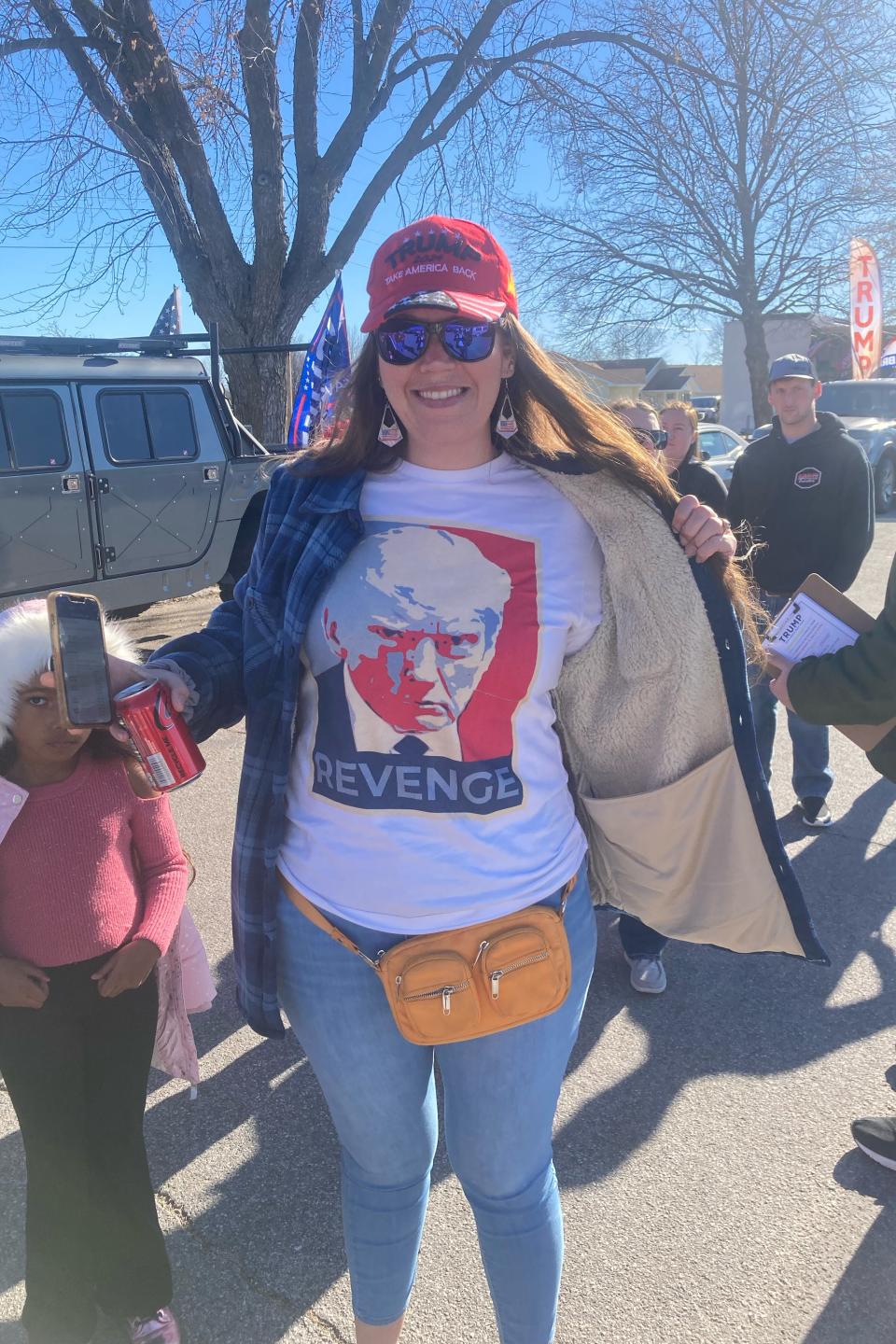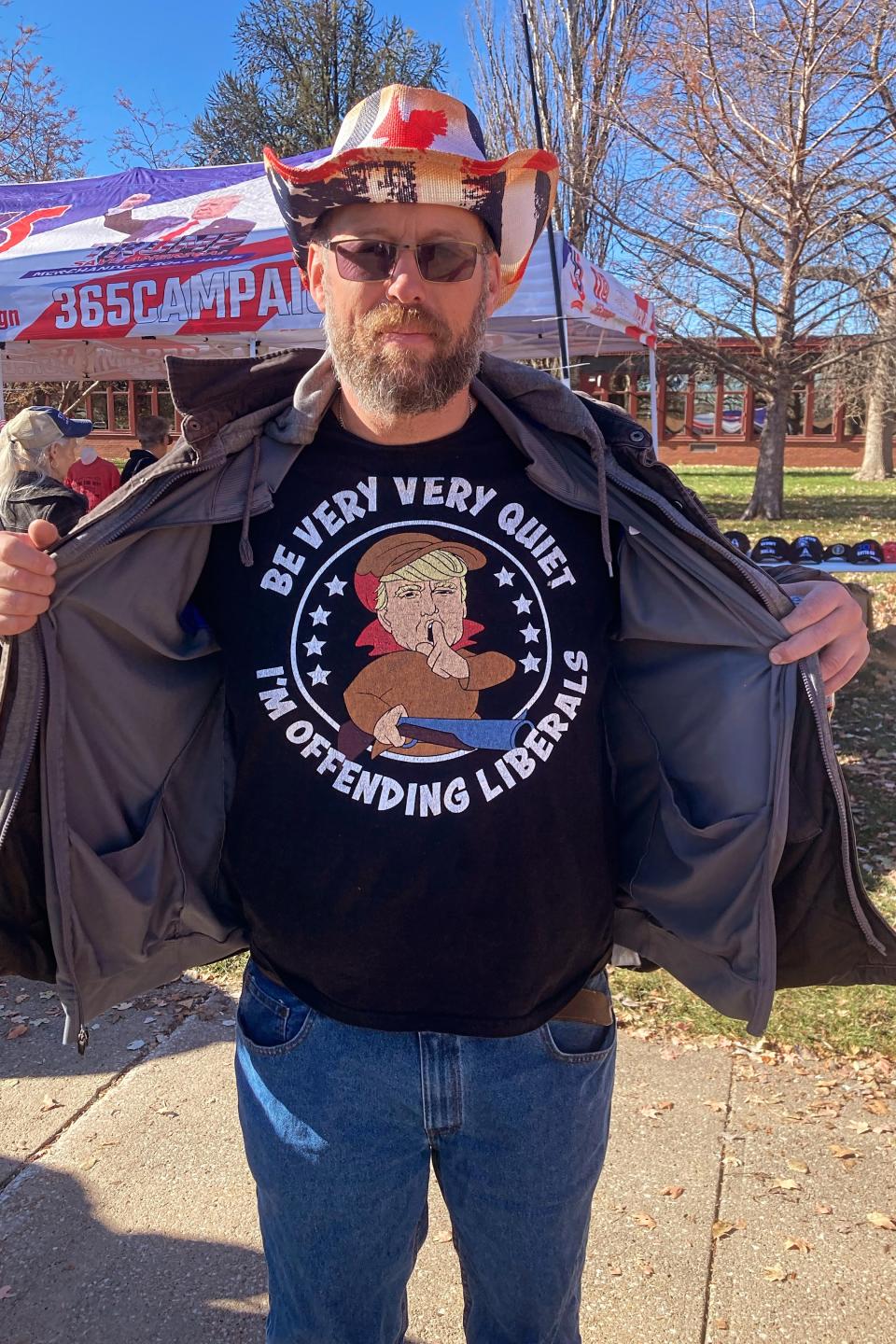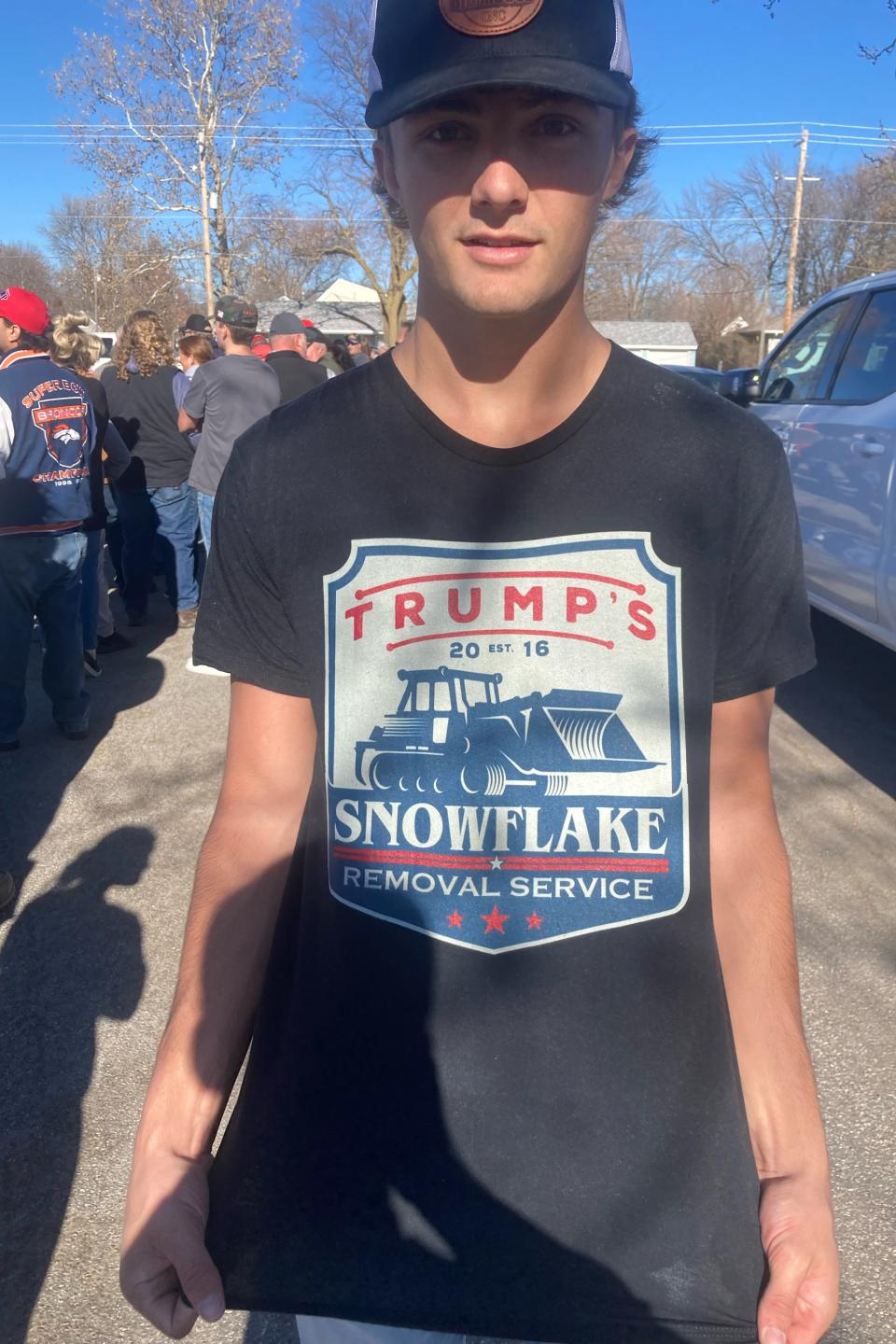Trump Rallies Aren’t Even Really About Politics at This Point
- Oops!Something went wrong.Please try again later.
For all of Donald Trump’s rhetorical innovations, personality quirks, and alleged criminal malfeasance, what has made him truly unique as a political figure is how much he has merged fan culture with American politics. It’s not unusual for Americans to idolize presidents—Ronald Reagan and Barack Obama are still actively revered by many—but no other president has inspired the same level of merchandise lines or themed car flags. A MAGA bumper sticker often isn’t simply a statement of loyalty; it’s a cultural signifier of community much like the dancing bear bumper sticker is for a Grateful Dead fan.
Nowhere is this more clear than at Trump’s rallies. He’s turned his campaign events into something that has more in common with a Bruce Springsteen concert than a Harry Truman whistle-stop tour.
A late-November Trump rally in Fort Dodge, Iowa, was as good an example of the genre as any. Held in a fading blue-collar city about 30 miles from the interstate, attendees started lining up for the rally early in the morning for the chance to see Trump appear in a high school gym decorated with banners celebrating victorious softball and bowling teams.
The line to get in wrapped around the school’s parking lot, forming an elongated C that stretched from the entrance of the building around the lot. Throughout, there were vendors selling Trump- and MAGA-branded clothing. Some set up full bazaars with shot glasses and keychains for sale alongside baseball hats and T-shirts. Others wheeled carts up and down the line, offering the most popular accessories. For the hungry, there was a food truck nearby.


Attendees were willing to stand for hours to get in, even if they were skeptical that they would get a chance to see the candidate. Pam Bygness of Coalville, Iowa, was way at the back of the line. She had attended Fort Dodge Senior High and didn’t think its gym could hold all the people waiting to get in. But she was still willing to wait for hours for her chance to see Trump. “He is truly a patriot,” she said. “You tell me what other man could go through what he has gone through to keep fighting for this country.”
At least half of those attending were showcasing their zeal in their fashion choices—including taking advantage of vendors swarming the rally. John Miller of Fort Dodge was wearing a brand-new T-shirt displaying Trump standing with an American flag and giving the middle finger with both hands above the slogan “One For Biden. One For Harris.”
Ashley Long of Des Moines had come wearing a Trump hat and a T-shirt with the image of the former president and a single word: “Revenge.” These had been sold by a right-wing podcaster, and Long described the shirt as “a joke” and the “opposite of Obama’s ‘Hope’ ” slogan. (Trump’s legal troubles have only made Long more supportive of him, she said, but she did caveat that if Trump did “something super heinous,” she could still support someone else. “It would have to be a video of Trump punting a baby for him not to be my guy,” she said.)
Chris Seedorf of Albert Lea, Minnesota, was wearing an American-flag cowboy hat and a shirt with a cartoon of a shotgun-wielding Trump modeled on Elmer Fudd and the slogan “Be Very Quiet I’m Offending Liberals.” Seedorf said he’d “take a bullet for” Trump and that Trump was the only politician he’d commit such an act of self-sacrifice for. Of the former president, Seedorf said: “He’d do it, too, for everyone else.”

Once attendees were let inside the high school gym, folding chairs were laid out on the basketball court, and the bleachers were packed up to the rafters. The soundtrack, which had favored early Elton John in Trump’s first presidential campaign, was now more tilted toward late Elvis. The music was interrupted by a preprogram where state elected officials did their best imitations of Trump’s populist rhetoric to entertain the crowd. One state representative started his speech by telling “transgender males” to “put their jockstraps back on” and ended it with an extended impression of Yoda, while another derided former San Francisco 49ers quarterback Colin Kaepernick as a “disrespectful little shit.” But they were undercards at best.
Trump has long drawn a community of superfans called “Front Row Joes” who treat his events with the same regard that Deadheads used to treat a live show. While Jim and Sandy Pamperin of St. Paul, Minnesota, weren’t quite in that community—Sandy had been to a mere eight Trump rallies while Jim had only been to three, including a canceled one in Iowa earlier this year—it was still an important event for them. Newlyweds married in Eureka Springs, Arkansas, just weeks before, they were treating the Trump rally as part of the celebration. As Sandy Pamperin said, “There is no better place to have a honeymoon.” Dressed in Trump gear and given prime seating, the couple was excited to get their picture taken with the former president after the event.
Eventually, finally, Trump took the stage, and the crowd stood to applaud him as Lee Greenwood blared from the speakers. They didn’t all sit down until the former president was 20 minutes into his speech, a variation on the all-too-familiar form: He riffed on a prepared text jampacked with dark “American Carnage”–style rhetoric assailing his opponents, chock-full of lines like “Crooked Joe Biden is also waging a demented crusade to annihilate Iowa ethanol,” and extended tangents about topics like the 2018 Florida gubernatorial primary, Xi Jinping’s granite-like physique, or the low crime in Fort Dodge. (According to Trump, “You don’t have people getting bopped over the top of the head” in the north-central Iowa town.)
At other typical caucus events, candidates at least face a handful of questions from voters, but there was none of that here. After all, while one might question Ron DeSantis on his foreign policy after his stump speech, no one would dare question Mick Jagger about what key he was singing in after a concert.
Instead, they stood, clapped, and cheered as Trump mocked long-standing foes like California Democrat Adam Schiff (“We call him pencil-neck,” Trump said, to guffaws), mocked transgender athletes participating in women’s sports, and shared humorous dismay about the salacious allegations of the infamous 2016 Steele dossier. Trump said of himself, to hoots and hollers, “He’s not into golden showers as they say—they call them. He’s not. I don’t like that idea.”
Afterward, attendees quickly streamed out. They had seen the show, bought their merchandise, and taken the selfies to prove that they were there. For hardcore Trump devotees, it was yet another milestone for them to mark down. And for those less devoted, it was a rare opportunity that was not to be missed. After all, presidential candidates come to Iowa all the time—but how often does Donald Trump come to your town?
Trump loyalists, let alone those motivated enough to attend his rallies, don’t make up a majority of Republican primary voters or general election voters. But they represent a key faction within the GOP and are perhaps the decisive reason for Trump’s political strength—even after 91 criminal charges, four tumultuous years in the White House, and one attempt to storm the Capitol and overturn a presidential election. Even when Trump’s political fortunes were at their lowest ebb after he left office, he still had a base devoted to him, not so much for his politics but for his personality and what that personality represents.
It’s certainly not enough to win the general election next year on its own—after all, Trump did not receive a plurality of the popular vote against Clinton or Biden. But it is enough to explain his current strength in the Republican primary, where a significant fraction of the GOP electorate is devoted to him. For all the efforts of his rivals to displace him from the lead, all the television ads devoted to touting their virtues, and the constant stream of court cases and legal documents outlining Trump’s failings, he has one advantage they just can’t touch.
Ron DeSantis and Nikki Haley have partisans. Donald Trump has fans.
